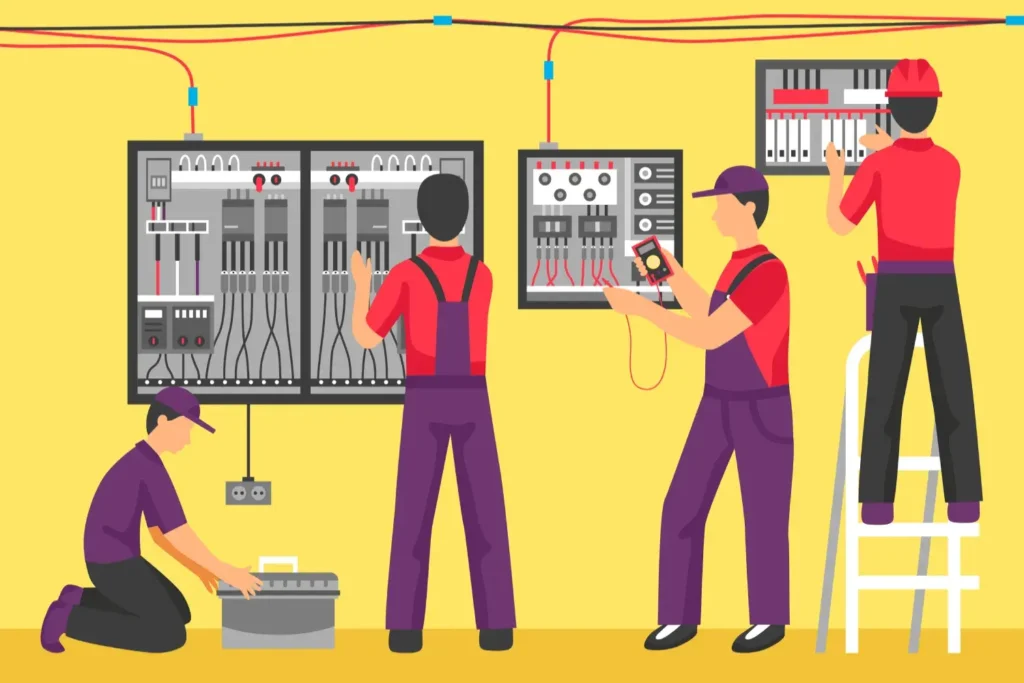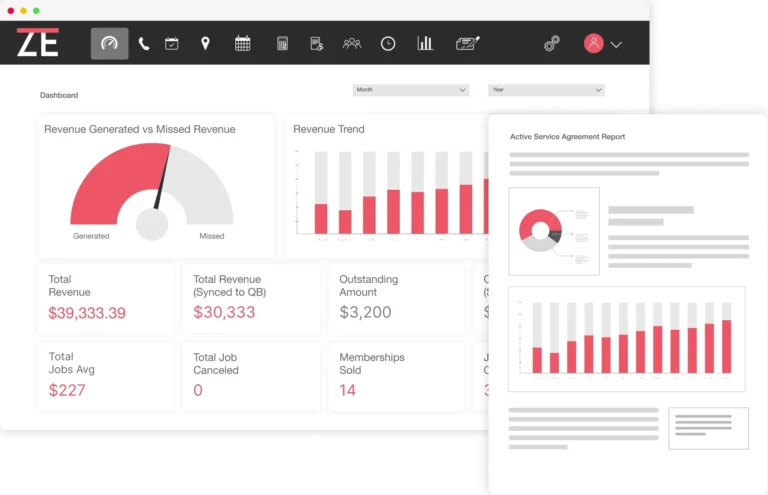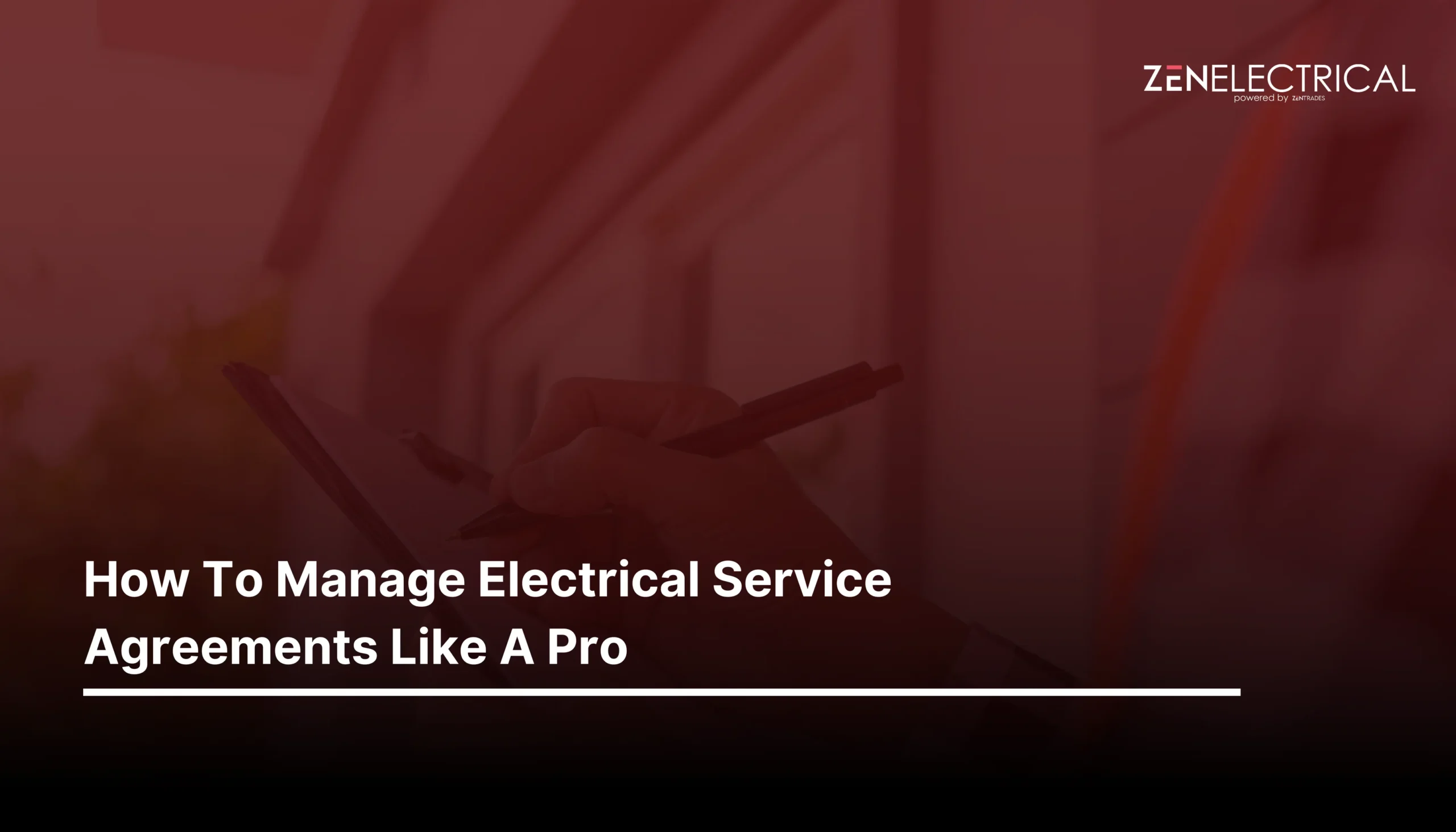How Long Does It Take To Become An Electrician? A Step-By-Step Guide
- ZenElectrical
- 9 Min Read
Electricians are a vital part of our lives. Without them, who would we go to when we face issues with our electrical systems, which we are surrounded by today? They take care of the most essential systems on which our life depends, like our security and HVAC systems or support for our everyday devices such as chargers and wires.
Being a qualified electrician can be a challenging career path, but it can be one of the most gratifying professions. Not only are you helping individuals in society deal with vital issues, but you are also contributing to the development and advancement of technology in our everyday lives.
According to the Bureau Of Labor Statistics, the number of jobs in the electrical field as an electrician is projected to grow by 6% between the years 2022 and 2032. The growth is pretty significant, and the job prospects look good enough to provide adequate employment opportunities in the future.
Moreover, it’s an extremely competitive field, and levels of expertise can decide how much you take home. The greater the level of expertise, the greater your chances of earning a good amount and living a comfortable life.
If you are an aspiring electrician or have just started your new career in the electrical field, you’re probably looking for answers as to when you can finally call yourself a professional and licensed electrician. In this blog, we will discuss what it takes to become an electrician and how long it takes to become an independent electrical worker to start an electrical contractor business.

Here What We Cover
Is It Hard To Become An Electrician?
Gearing up to be a licensed electrician, it’s imperative to understand that it is a lengthy process. Establishing yourself as a master of the arts is not just a matter of a few years but probably a decade. First, you must complete school and get a high school diploma, with a focus on science, maths, and English. Having a strong grasp of these subjects can help you, in the long run, to understand critical topics and get your basics right from the very beginning.
Next, you must work hard at an electrical apprenticeship and dedicate almost five years to an apprenticeship training program, college, or trade school, where you will be exposed to hours of classroom instruction and hands-on training. After completing your basic training, you will be eligible for a journeyman electrician licensure, which you can get after taking the exam. With an additional two years or 4000 hours of training, you will be eligible to become a master electrician.
The more projects you take up, the more expertise you gain in electrical systems and the national electrical code, and the faster you can level up in your journey and earn your desired amount. Having an electrician license is necessary for most states, so you should focus on the job training and take your exams seriously with sufficient preparation.
Also, getting your master electrician license can help you achieve the highest level of certification in this field and allow you to start your own electrical contractor business.
So, to answer the question, is it hard to become an electrician? Well, it depends on how much effort you’re willing to put in and how much patience you have to achieve your goals, stating that it is your career path you’re passionate and serious about. Being an electrician is no joke, as you are responsible for installing, repairing, and maintaining critical electrical systems, which can turn out catastrophic if not done with the utmost perfection.

Use our free estimate template now
Make winning quotes in minutes—for any industry and any job.
A Step-By-Step Process To Become An Electrician
Let’s jump right into the steps immediately:
Step 1: Get A High School Diploma Or Equivalent
You unquestionably require a high school diploma or a GED to qualify for the profession. You also need to focus adequately on essential subjects like math, science, and English to help you prepare for and advance in this field. You need to build strong mathematics basics, as you will need to determine wire length and voltage requirements, for instance. Special emphasis on physics and electronics will help you become familiar with topics such as electric circuit theory, electrical systems, wirings, building circuit boards, etc.
Step 2: Get Into An Electrician Trade School Or Apprenticeship Program
After you have completed and received your basic high school degree, it’s time to get some hands-on experience as an apprentice. You can either choose an apprenticeship program or get into an electrician trade school. There are significant differences between both of these institutions concerning their timeframe, cost of training, learning style, and skillset. Some apprenticeship programs are paid, allowing you to earn an income while learning on the job.
Apprenticeships are generally 4 to 5 years long, with 800 classroom training hours and 2000 hours of on-the-job training each year. These programs are a great way to enhance your skillset, expose yourself to real-life electrical problems, and connect with mentors and fellow professionals in the same industry.
Step 3: Get Your Electrician License
Once you have completed your training and have completed the minimum requirements to advance to the next level of becoming a journeyman electrician, it’s time to get your licensure.
A licensed and certified electrician is qualified to work as a commercial electrician, making him more reliable. Furthermore, one striking advantage of hiring licensed electricians over unlicensed ones is that they are insured under liability insurance. This means that if they incur any damage to your system or property, you are subjected to compensation for repairs and damages, adding an extra layer of protection and peace of mind.
Preparing for the journeyman electrician exam can help you get your licensure. At first, you must have your high school diploma certificate and then complete your electrician apprenticeship. Moreover, the topics covered in your electrician school or electrician program, like electrical theory, will help you in the exam. Not to mention, the on-the-job experience will help you answer practical questions in the exam. Once you have done this, you are eligible to take the examination and get your license as a journeyman electrician.
Step 4: Advancing Further
Once you obtain the license to work as a journeyman electrician, you would then need to get your licensure as a master electrician. Master electricians enjoy a plethora of benefits, including a higher pay range, independent projects, more expertise and experience in dealing with complex electrical systems, and, most importantly, starting your own electrical contractor business.
Being a master electrician is not easy. You need an additional 4000 hours of hands-on experience as a journeyman electrician. You will also need to take your master electrician exam, which can be significantly tougher than your journeyman test. You need to pass written and practical assessments of your electrical competency exams. Master electricians are expected to be adept at creating blueprints, which is something expected at this seniority level. Apart from blueprints, they need to have a robust understanding of complex electrical systems and understanding of electrical equipment and their functionality.
How Long Does It Really Take To Become An Electrician?
It will take you almost 8 to 10 years to reach the position of a master electrician, depending on your rate of progress.
Let’s understand why:-
It will take approximately 4-5 years to complete your apprenticeship.
As a journeyman electrician, you will need 2-3 or more years to get the required number of hours to be eligible for the master electrician position.
After that, you can get your licensure as a master electrician.
This entire procedure can take you almost 8 to 10 years, which seems like a long stretch of time, but it can be an extremely fulfilling journey if you’re passionate about your work and have that thirst to advance in your career.

Thinking About Starting Your Own Electrical Business?
If you’re a certified and licensed electrician looking to make significant revenue by advancing further in your career, maybe it’s time to start your own electrical business!
But what are the pros and cons? Let’s see:
Pros
Well, for starters, you are your own boss. You have full control and flexibility over your business, from choosing your working hours to setting the price of your services. There are major scopes for increasing your earnings as you get to keep the entire profit instead of sharing it with your employer. As you know, the demand for electrical services is constant, making the market reliable for your business.
Cons
Now, let’s talk about the cons. The most prominent one would be that you will be exposing yourself to financial risks. Starting from the initial costs of setting up your business and purchasing tools and equipment for the services to marketing and insurance costs – it’s a lot of investment. In the initial phases, you might have a light client base, making it difficult to have a stable income contributing to profits. The market can be competitive, and you might miss out a little on work-life balance by working extra hours as you are the only person responsible for your business.
Moreover, when you start your own electrical business or any service trade business, you need to take care of administrative tasks. These involve tasks such as invoicing, scheduling and dispatching your technicians, sending service agreements, managing payments, and other related activities.
But hey, we have something for you to tackle this particular issue!
Get posts like this in your inbox.
Keep learning how to run a 5-star business with our bi-weekly newsletter.
ZenElectrical At Your Rescue!
With ZenElectrical, the best electrical contractor software in the market, you no longer have to worry about back-office tasks. Our software solution provides everything you need to manage your business hassle-free and efficiently. It helps you streamline the recurring and redundant tasks at hand so that you can focus more on revenue-generating activities.

ZenElectrical, with its comprehensive and handy features, helps you attract a broader customer base. It assists in fostering loyalty in your customer relationships and transforms transactional encounters into valued partnerships. Our software is aligned to suit your specific needs, gets you the beneficial features for your business, and refines all aspects of your business to help you distinguish yourself from your competitors.
Intrigued? Why not join us for a call and see for yourself? Book a personalized demo with ZenElectrical today and bring out the hidden potential of your electrical business.

Explore a better way to grow your business. Book a free demo now!
Get organized, win jobs, and wow customers.
Book A Free Demo with ZenTrades Today!
Related Reading
Why Your Field Software Management Software Needs QuickBooks Integration
ZenTrades Why Your Field Service Management Software Needs QuickBooks Integration Read More Request Demo...
Read MoreZenTrades How To Manage Electrical Service Agreements Like...
Read MoreZenTrades The Best 5 Jobber Alternatives In 2023...
Read More


